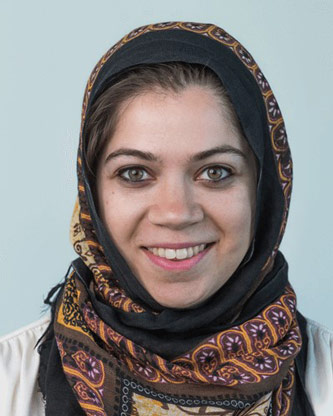Zujaja Tauqeer '11

Zujaja Tauqeer, M.D., D.Phil. '11
Physician
In what ways do you feel your major in history helped to prepare you for your current career? Are there any skills that you developed as an undergraduate history major that are essential to your work? And can you give us an example (or examples) of this?
Majoring in history at Brooklyn College has shaped my career trajectory. I was always committed to pursuing a career in medicine (and, in fact I had been accepted to medical school before I started my history major). But the subject matter in my history courses was so interesting—not just names, dates, and places—and my professors so supportive of me having the opportunity to pursue my intensifying interest in the humanities that I ended up doing a doctorate in history prior to medical school. It has also shaped my interest in bioethics and history of medicine as a physician.
Through the support of my professors at Brooklyn College, I went on to do a doctorate in history at Oxford. My program had no course work so I had to hit the ground running when I started, and the skills that I had learned at BC enabled me to succeed in writing a thesis that passed without any corrections. These skills include writing well; critically investigation written sources; and understanding, appreciating, and contributing to the historiography of one's discipline. My introduction to these skills was in the History 10W class with Professor Andrew Meyer. Only later did I come to appreciate the deceptively rigorous training he imparted on me and the rest of my class as we informally and openly discussed readings by Herodotus and Livy and Ssuma Chien and learned to construct narratives of the past while probing the motivations of historians who chose to write certain things down.
The history major has made an indelible impact on my career in medicine. People in medicine are well aware of how broken our system is and how much we need to understand the history and ethics of healthcare in America in order to fix it. The study of historiography teaches one to question the premises of historical narratives and to understand the motives and context that inform the knowledge we produce. This is critical in medicine, however there is an impoverished understanding among medical practitioners for why we practice medicine as we do and why certain kind of health disparities exist. Why is maternal mortality so high in the United States? Why is the price of insulin so prohibitive? Why are public health systems in many previously colonized nations so inadequate? My study of history of medicine has motivated me to study and write about medical ethics and the social determinants of health, and to explore how conventions of medical practice are informed by social, political and economic factors. Having this strong critical approach allows one to envision changes and reforms in medicine to provide better care and to rid our society of disparities in healthcare, which are the most pernicious of all social evils.
The history major and political science minor brought me into contact with incredible professors like Andrew Meyer and Swapna Banerjee and Corey Robin and Caroline Arnold who helped me to hone my writing voice. I cannot imagine a more empowering education: to be taught how to speak and write well in order to be heard and therefore to be able advocate for yourself. My ability to express myself effectively has landed me grants, scholarships, and access to institutions that provide me the social capital to advocate for the causes I care about.
On a grand scale, to know how history is written and by whom and to critique the meaning of words has helped me to deeply understand the use and power of language, and how words are used to create narratives in our news, politics, social relations, public institutions, which all deeply inform how we think of our ourselves and our social values—the economic policies we enact, the borders we defend, the wars we fight. I feel privileged that as a working-class immigrant growing up in New York I was able to access such a high quality public education that gave me power to understand and use language in a way that is only afforded to others with great power and privilege in our society.
I never envisioned being able to do graduate study in the humanities—it was not something anyone in my family had ever done. I am grateful for the chance to study the humanities at a public university with classmates who were parents, veterans, refugees, workers, activists and many other nontraditional students encompassing the entire gamut of New York's working class, because it taught me the value of public institutions in giving common people access to their shared written history and influence over their representation in historical narratives and the resulting social policies that affect them.






